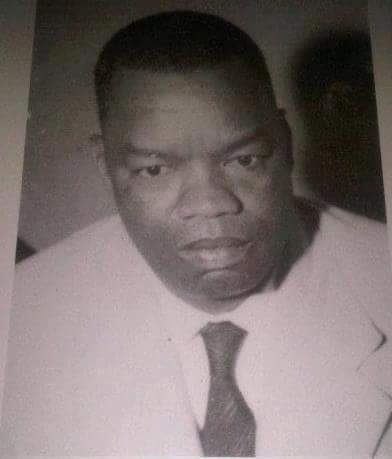Sir Louis Ojukwu: 20 Key Achievements of First Nigerian-African Man to Make Multi-Billions of Dollars Without Oil Well
It’s a common notion among the 21st century citizens of Nigeria and other African countries among others that one has to either foil one’s hands on the public treasure or engage in other illegal businesses to be exceedingly wealthy. This is a sequel to the inarguable manifestation of what a Literary Icon, Chinua Achebe (late), entitled: “Things Fall Apart”, in the country, and society at large.
Meanwhile, the footprints of Sir Louis Philip Odumegwu Ojukwu (OBE), would endure the harsh sand of time as the first-ever man in Nigeria who distinguished himself amongst his equals who hit billion dollars.
Sir Louis Philip Odumegwu Ojukwu was born in the year 1909, and brought up in Nnewi, Anambra State. He was the only boy and second of four children of the Ojukwu family of Nwakanwa quarters Obiuno Umudim, Nnewi. He attended Government Primary School, Asaba in Delta State.
In 1922, Louis Ojukwu proceeded to the only Secondary School in the Eastern region at the time, Hope Waddell Training Institute, Calabar, and a sequel to the completion of his Secondary School Education in 1928, Sir Louis Ojukwu secured a job as a Tyre Sales Clerk with John Holt, Lagos in 1929.
It was working as a tyre clark that Sir Louis Ojukwu observed that many Igbo traders who came to Lagos to buy tyres also bought textiles. Thus, with his meagre savings, Sir Louis traveled down to Onitsha where he opened his first business venture called “Ojukwu Stores”, and latere, left the business under the auspices of one of his relatives.
Sir Ojukwu, then, returned to Lagos and started sending down textiles on Lorries to his shop while still working for John Holt. Consequently, Sir Louise Ojukwu’s textile business boomed.
Fast forward to 1930, Louis bought a second-hand truck and hired a driver to move his goods himself, and the ‘Ojukwu transport company’ was born.
Sir Ojukwu worked tirelessly and by the late 1930s, he turned out to become the major transporter on the East-West Road.
Concurrently, in 1939, on the outbreak of World War 2, the British Government requested to use of Sir Ojukwu’s fleet of trucks for the War effort to which he agreed.
Hardly had the war ended in 1945, when the British government acknowledged the sacrifice he made and he was awarded a KBE (Knight of the British Empire).
Meanwhile, the end of the war also created a high demand for raw materials from West Africa, and Sir Ojukwu’s Transport business exploded sky-high and he diversified its horizon to other businesses.
Some of Sir Ojukwu’s early drivers such as Chief Ilodibe (Ekene Dili Chukwu), and Chief Izuchukwu (Izuchukwu Transport) would later become Transport moguls themselves (Igbo Wealth Creation).
At this juncture, it is to be reiterated that Sir Louis Ojukwu was a great man who accomplished and made so much wealth without oil before he joined his ancestors.
Sir Ojukwu was so rich that he did not require official papers to visit Britain.
Sir Ojukwu’s Rolls-Royce Silver Wraith LWB was used to chauffeur Queen Elizabeth during her 1956 visit.
Furthermore, in the report by Forbes Africa, Sir Louis Odumegwu Ojukwu who founded the Nigerian Stock Exchange (NSE), was the first Billionaire in Nigeria.
This draws credence to his sole ownership of Victoria Garden, Lagos.
Little wonder a popular Igbo High Life Musician, Ayiaka Ozubulu released a hit track, extolling Sir Ojukwu, who went to Lagos with nothing in 1929 at the age of 20, but 10 years later, he was already managing his chain of businesses which included, Ojukwu Stores, Ojukwu textiles and Ojukwu transportation company.
Thus, by 1950, Ojukwu Transportation Company had over 200 trucks in its fleet, which triggered questions on the magics behind his overwhelming financial achievements.
Sir Louis was also a financial pillar of the Ziks NCNC party and when the party came to power in 1960, Sir Louis was offered the position of Finance Minister, which he turned down, the position ultimately went to Okotie-Eboh. Sir Louis died in Nkalagu, present-day Ebonyi state, in 1966.
Some other of his key achievements include:
- The first President of the Nigerian Stock Exchange.
- President, African Continental Bank
- Chairman, Nigerian Cement Company (NIGERCEM)
- CEO, Ojukwu Transport company…over 5000 fleet of trucks.
- Chairman, Nigerian National Shipping Line…over 100 ships and vessels
- Chairman, Lion Of Africa Insurance Company
- Chairman, BISCO Nigeria Limited Cool Chairman, Nigerian Industrial Development Bank. founded to specifically give loans to industries
- Vice President, Lagos Chamber Of Commerce
- Chairman, Palmline Shipping company
- Chairman, Nigerian Produce Marketing Board
- Director, Shell D’Arcy Petroleum
- Director, Thomas Wyatt & Son
- Director, Nigerian Coal Corporation
- Director, Guinness Nigeria Limited
- Director, Nigerian Tobacco Company
- Director, Daily Times of Nigeria
Also, Sir Louis Ojukwu owned numerous buildings, landed property, and stocks.
It is estimated that as at the time he died in 1966, he was worth about 40 Billion Dollars in today’s money.
It is not a coincidence that his town, Nnewi, has the highest number of Billionaires in Nigeria today. One can see the effect of wealth distribution. He inspired many of those Billionaires from Nnewi and beyond. Until men who believe & understand wealth distribution like Sir Louis Odumegwu Ojukwu emerge, this record would endlessly remain unique in the history of wealthy people in Nigeria.
Recall that Sir Louis Philip Ojukwu begot General Odumegwu Chukwuemeka Ojukwu, the Leader of the defunct Sovereign States of Biafra.
The above-mentioned are some of the records that undoubtedly enabled Louis Ojukwu to stand out without blending in the history of wealthy Nigerians who had no business connection with the ownership and siphoning off money from petroleum and oil in the country.
Credit: Igbo History TV.
